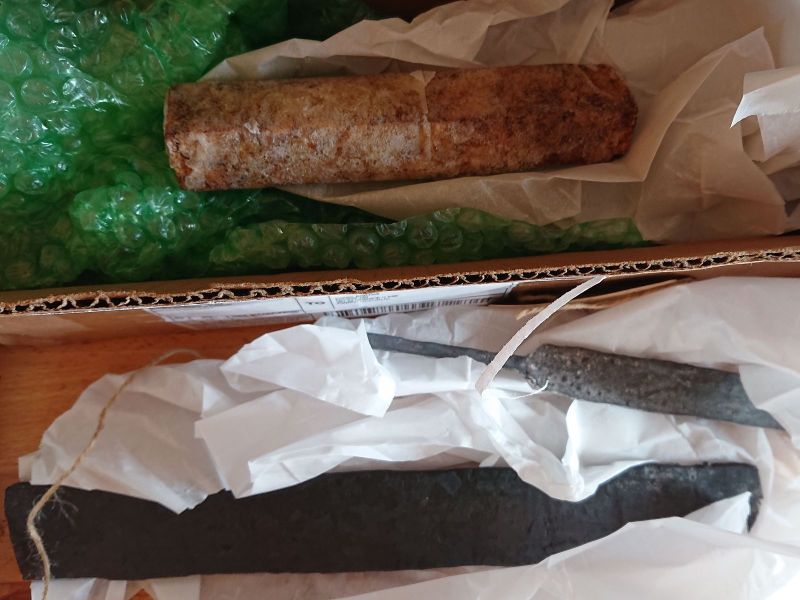I thought I will finish shaping the handle today. Instead, I have to start all over again – the piece of cherrywood that I used had some deep cracks (they were not on the outside) that got too wide and too visible in addition to two unseemly knots. The knots themselves could be seen as a part of the wood, but the cracks kill it definitively.
I have just spent some 2 hours shaping a piece of firewood.


































